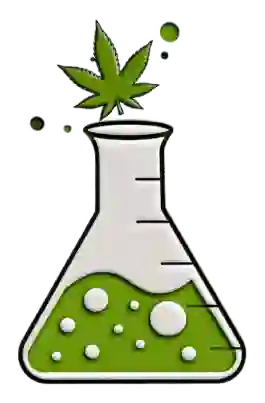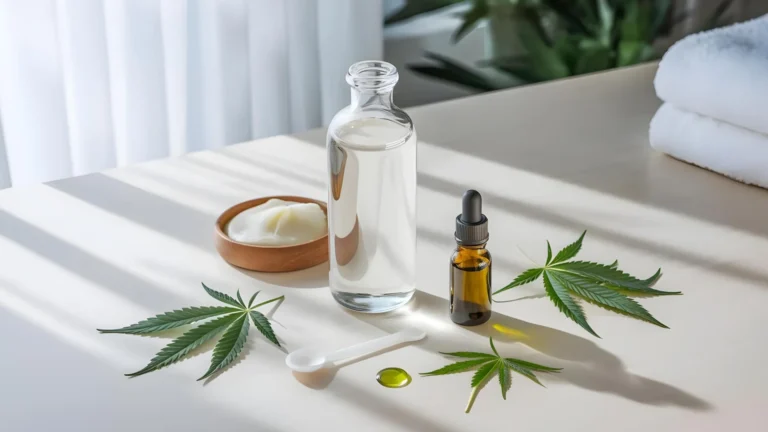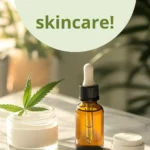You’ve likely seen Glycerin soap or found Glycerin in moisturising products. But do you know its benefits for your skin and hair? As a cosmetologist passionate about DIY skincare, I believe Glycerin should be a vital ingredient in your homemade beauty products. As a humectant, it’s a moisture magnet, perfect for creams, lotions, and even cannabis-infused blends. Let’s look into its perks, pitfalls, and how it fits into your skincare routine – without the confusion!
Table of Contents
*As an Amazon Associate, I earn from qualifying purchases
Is Glycerin an Alcohol?
Yes, it’s a naturally occurring alcohol. Chemically, its INCI name is Glycerol. As the word ends in “ol”, that means it is an alcohol. Is this a concern for people with strict religious beliefs about alcohol or those who simply avoid it?
It is not an alcoholic beverage because it doesn’t come from fermentation and does not impact your mind. It’s a gentle, skin-friendly compound found in healthy skin, making it a staple in DIY formulations. It does bring up another question, though.
What Is Glycerin Made Of?
Glycerin is a natural component of healthy skin, and it protects skin by keeping it flexible. However, levels can diminish as we age, and also because of using harsh chemicals on our skin – cue wrinkles!
The most common source of Glycerin in skincare is from the slaughterhouse and leftover animal parts. Fat from animals is sold as tallow and used to make soap, and this also produces Glycerin. You will find that Glycerin from the abattoir goes to the pharmaceutical, food and cosmetic industries. I skip that – I prefer plant-based Glycerin, extracted from oils like coconut or soy, for ethical and practical reasons.
Is Glycerin Halal and Vegan?
Plant-based Glycerin is both halal and vegan – no animal involvement. I choose not to use any animal products at all in my formulations. Synthetic Glycerin is produced, but honestly, why bother when a vegetable-sourced one is so easily available?
Top Glycerin Benefits for Skin and Hair
Pure Glycerin is a colourless, odourless, viscous liquid – and a hydration powerhouse! Because it is a humectant, it attracts water into the skin, which makes the skin more hydrated. A humectant pulls moisture towards itself, so your product that contains Glycerin helps to keep your skin hydration levels high. This also helps to protect the skin.
It is a very good humectant, so you don’t need to add much at all. Many a dermatologist will suggest Hyaluronic Acid, which is excellent – and expensive. Glycerin can help keep your skin cells hydrated in a much more affordable way.
- Soothes Dryness: Relieves irritation and temporary discomfort fast.
- Hydrates Skin: As a humectant, it pulls water into your skin, keeping it plump and soft.
- Non-Greasy: Moisturises without that oily feel – ideal for all skin types, even acne-prone.
- Boosts Hair: Locks moisture into hair shafts, reducing brittleness and scalp flaking.
Glycerin in DIY Skincare: How It Works
Glycerin’s humectant magic draws moisture to your skin, protecting it from dryness. When I add glycerin to my skincare recipes, I usually stick to about 3% to 6%. That’s just the right amount to keep things hydrated without going overboard. More than that, and the final cream or lotion can feel sticky.
It’s perfect for mixing DIY skincare ingredients like xanthan gum or Vitamin B3 to create smooth, lump-free pastes for blending.
- Formulating Tip: Try sorbitol for cleansers – it’s twice as potent, imparts a velvety feel, and is great for mature skin serums.
Can You Apply Glycerin Directly to Your Face?
No – straight Glycerin is a no-go! It grabs water so fast it’ll leave your skin sticky and, over time, drier than before! Why? It pulls moisture from deeper skin layers if there’s no external water source (like a steamy room). Dilute it in formulations, using 3% to 6% in creams and lotions, or mix with rose water in a low ratio for a skin toner.
Why is it used at such high levels in commercial products? Firstly, it will make your skin look plump and hydrated, even while it is drawing water from the surface of the skin. I’m sure you have come across products like this before, where you seem to need more and more of the product. You possibly tell yourself that it’s down to central heating, or the weather, or that you think you have very dry, parched skin. The actual reason is that too much can cause dry, flaky skin.
- Pitfall: High-Glycerin products (e.g. 50/50 Glycerin and rose water) can dehydrate skin long-term, despite the initial plumpness.
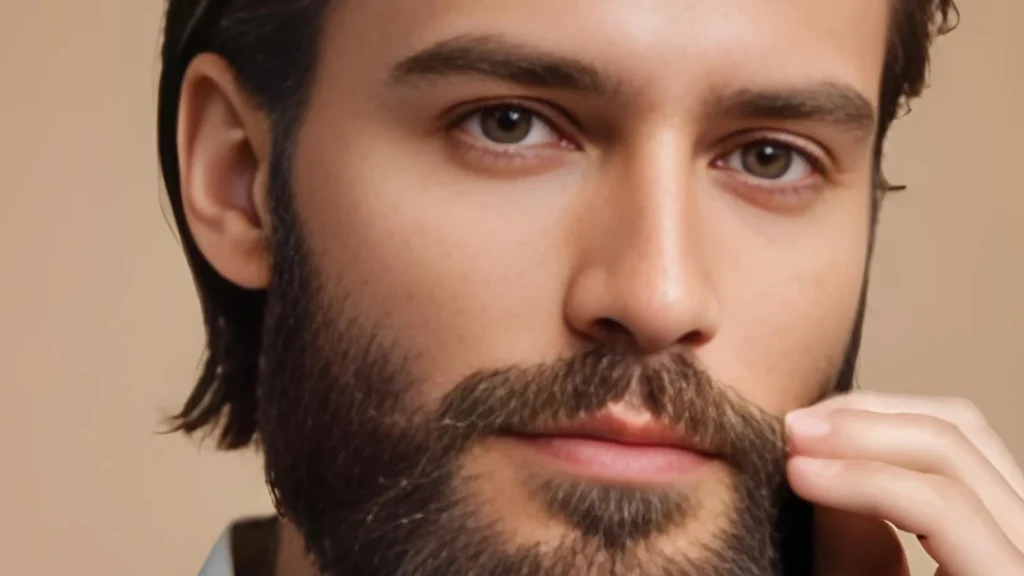
Glycerin for Hair: Moisturising Magic
Glycerin isn’t just for skin – it’s a haircare hero too. Just as with skincare, it pulls moisture towards itself and keeps the hair shaft hydrated and flexible. Add it to shampoos, conditioners, or masks to:
- Hydrate hair shafts, keeping them flexible and shiny.
- Soften dead skin on your scalp, rinsing away build-up from weaves or extensions.
Try This: Mix 5% Glycerin into your conditioner for a moisture boost!
Side Effects of Too Much Glycerin
Are you surprised that there are side effects to using Glycerin for your skin? Well, it’s actually from using too much. As we have seen, Glycerin pulls moisture towards itself. Unless you are in an extremely moist atmosphere, where is that moisture being taken from? From your skin, and this is really common in mainstream cosmetics.
Moisture is pulled out of your skin, which then means it is no longer an effective moisturiser. This can even lead to cracked skin. At high levels (above 10%), it:
- Dries out skin by pulling moisture from deeper layers.
- Feels sticky and tacky.
- It may enhance sensitivity to sunlight or lead to skin cracking in arid environments.
Cannabis and Glycerin: A Perfect Pair?
You will find loads of articles and videos on the internet saying to use glycerin to extract cannabis. Don’t waste your time, or waste your money doing it, because it simply does not work. Skip the hype – even though it is technically an alcohol, glycerin won’t extract cannabis like ethanol does.
Glycerin is water-soluble, not fat- or alcohol-friendly enough for a tincture. Instead:
- Make an ethanol-based cannabis tincture first (e.g. 10g cannabis in 100ml ethanol).
- Mix with equal parts glycerin post-extraction for a smoother, sweeter result.
Together in creams? Amazing. Glycerin’s hydration pairs with cannabis’s anti-inflammatory perks for sensitive or dry skin. Try this Cannabis and Glycerin Skincare Lotion.
Conclusion
Glycerin is a non-fermented alcohol that acts as a quick-acting humectant, making it useful in DIY skincare and haircare at concentrations of 3% to 6%. Pair it with cannabis for a hydration boost, and you’ve got a winning combo for all skin types. Ready to mix your own?
FAQ
What are the benefits of glycerin for skin?
Glycerin acts as a humectant, drawing moisture into the skin. This helps hydrate the outer layer, improves the skin barrier, and protects against irritants. It also helps with wound healing and relieves dry skin conditions.
How does glycerin benefit hair health?
Glycerin hydrates the hair shaft, making it softer, shinier, and more flexible. It also soothes the scalp, helps remove product build-up, and relieves dryness.
Can glycerin be applied directly to the face?
Pure glycerin should be diluted before applying to the face. Used straight, it may draw moisture from deeper skin layers, so it’s best mixed with water or floral hydrosols.
Is glycerin suitable for all hair types?
Glycerin works for most hair types, especially coarse or dry hair. However, those with freshly coloured hair should use caution, as glycerin can sometimes affect colour retention.
Are there any side effects of using glycerin on skin or hair?
Overusing glycerin, especially in dry environments, can cause skin dehydration as it pulls moisture from deeper layers. Always use it diluted and combined with other moisturisers.
Is plant-based glycerin vegan and halal?
Yes, plant-based glycerin made from sources like soy or coconut is both vegan and halal.
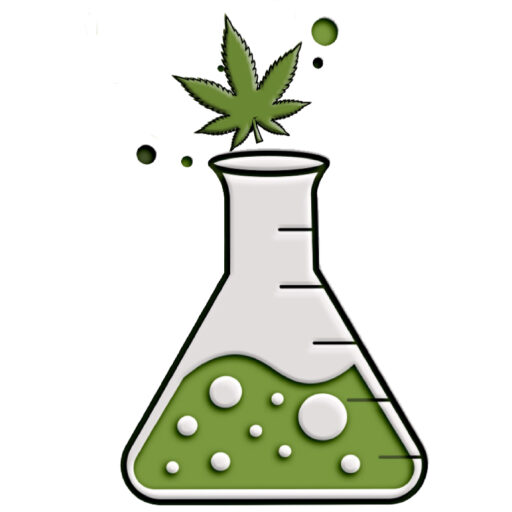
If you liked this blog post, I would love it if you shared it with a friend.
If you use Pinterest, please pin this post.
